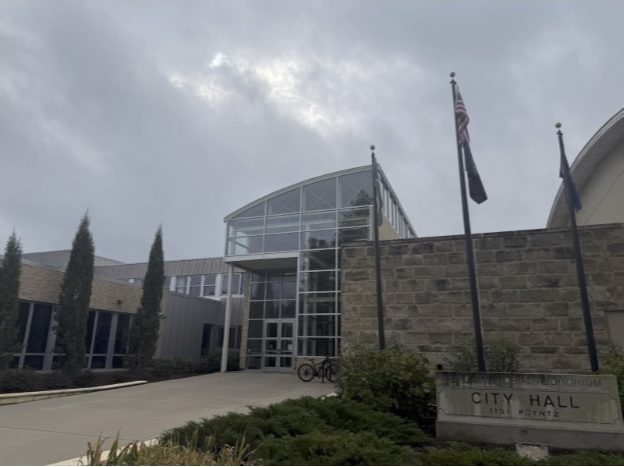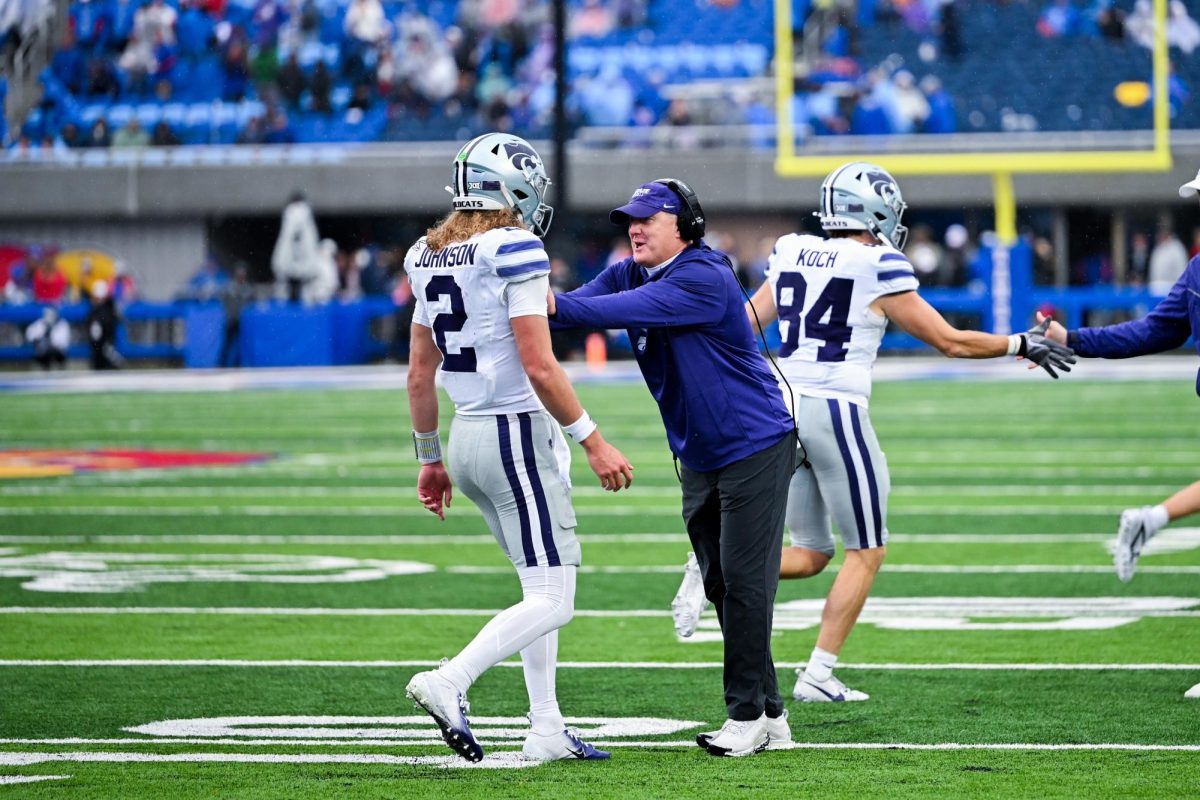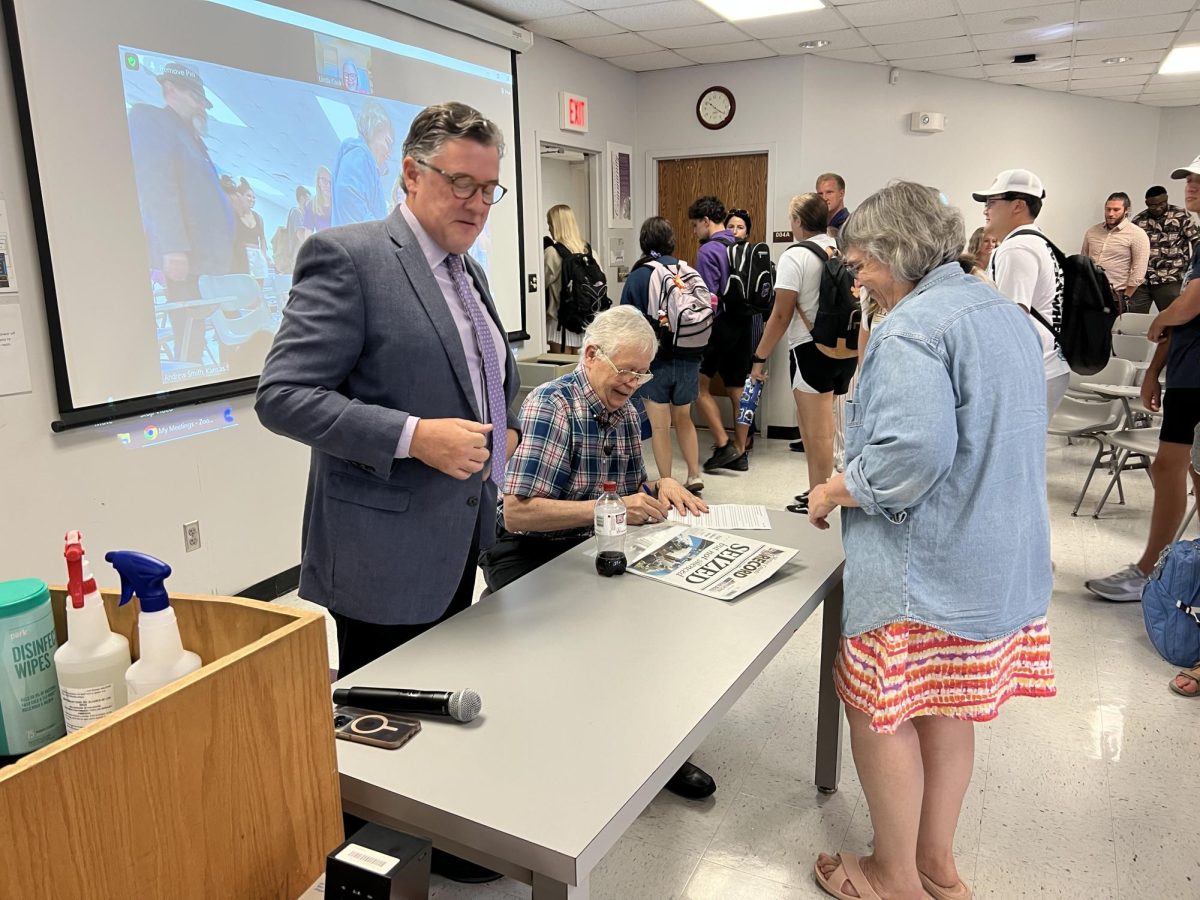Police raided the Marion County Record on Aug. 11, 2023, falsely alleging the newspaper stole the identity of a local restaurant owner.
“It was a search that shouldn’t have been legal because you really aren’t authorized to do searches of newsrooms under federal law — you’re supposed to issue a subpoena,” Eric Meyer, owner, editor and publisher of the Marion County Record, said. “While they were here, they looked at things that they weren’t authorized to look at, they took computers that they were only authorized to check — not to take — so it was illegal in about any way you can think about it.”
The raid sets the stage for a resolution within the Kansas House of Representatives that affirms “unwavering support for the free press in the state of Kansas.” The resolution asks the attorney general to report on the extent police violated civil rights of reporters during the raid.
“We have gotten a lot of comments from people,” Meyer said. “We were getting a lot of them from legislators in other states, and we were kind of surprised that we hadn’t gotten more from people in Kansas. But we’ve had some legislators in Kansas who’ve talked to us and have been aghast at this.”
Meyer said the process of seeking retribution for the raid is slow.
“We haven’t even filed our suit yet, but the ones that have been filed are probably going to be scheduled, probably going to resolve sometime in the fall of 2025,” Meyer said. “So it’s a long time out and ours may be longer than that. So yeah, the wheels of justice move slowly — a lot slower than the wheels of coming in and seizing your things.”
The newspaper received notes from both political parties regarding the raid, but Meyer said he questions whether the bipartisan resolution will pass.
“A great number of Democrats signed on as sponsors of the legislation, which pretty well kills it from truly going anywhere in the Kansas Legislature,” Meyer said. “We have heard from some Republicans that they are trying to have their own legislation now because, you know, it wouldn’t be possible for Republicans and Democrats to agree on anything.”
Journalism professor Andrew Smith said he questions the need for this legislation when considering the words of the Constitution.
“There’s only a need for this kind of legislation if people are either misinterpreting the Constitution or are ignoring the Constitution,” Smith said. “The First Amendment is ‘Congress shall make no law’ which impedes the press, so that means you shouldn’t have to make another law to support it. It’s already there.”
Assistant Chief Operator of Wildcat 91.9 Dawson Wagner said the raid made him question how something like this could happen so close to home.
“Hopefully it won’t happen again because of how unique of a case it was, but it does make you question if it can happen again, and how could it happen again,” Wagner said.
Wagner said the issue comes down to a disconnect between police and the community.
“What it really came back to was a mistrust of not only the authorities, but also the authorities’ mistrust in the newspaper, thinking that they were actually involved in something that you know they weren’t caught up in,” Wagner said.
Smith said individualism could be a factor in tensions between the public, authorities and journalists.
“We’re very skeptical of authority and we often feel like those who are in authority don’t always have our best interests at heart,” Smith said. “We’re not wrong in that, but the goal of journalism is to show us when that’s not wrong. … True journalism is there to help the people, allow that to happen and understand that that is any goal of any true journalist.”
Accountability starts with the journalist, Wagner said.
“When it comes to holding people accountable through your reporting, you have to hold yourself accountable to be able to tell the story in the first place, because you can’t approach it with biases that will shape the story in a specific way, because that is what journalism is so often criticized for,” Wagner said.
While journalists are responsible for publishing the truth, Smith said the public is also responsible for how they consume news.
“The public does need to be a good and savvy consumer,” Smith said. “Journalistic material, by definition, is true, and so anything that is not true is fiction. That’s not journalism. So, being able to tell the fact from fiction is partly, in this day and age, something that has fallen in part to the consumer.”
In the wake of this legislation, Meyer said it is up to people to determine what freedom of press should mean.
“The key point of this whole story is who controls the government: the people or the people in the government?” Meyer said. “This is a time when the people seem to be united. I mean, they seem to support what we’re doing. Will they be able to get that point across? I don’t know. We’ll find out if they do. It could be the first step in sort of taking back power.”























































































































